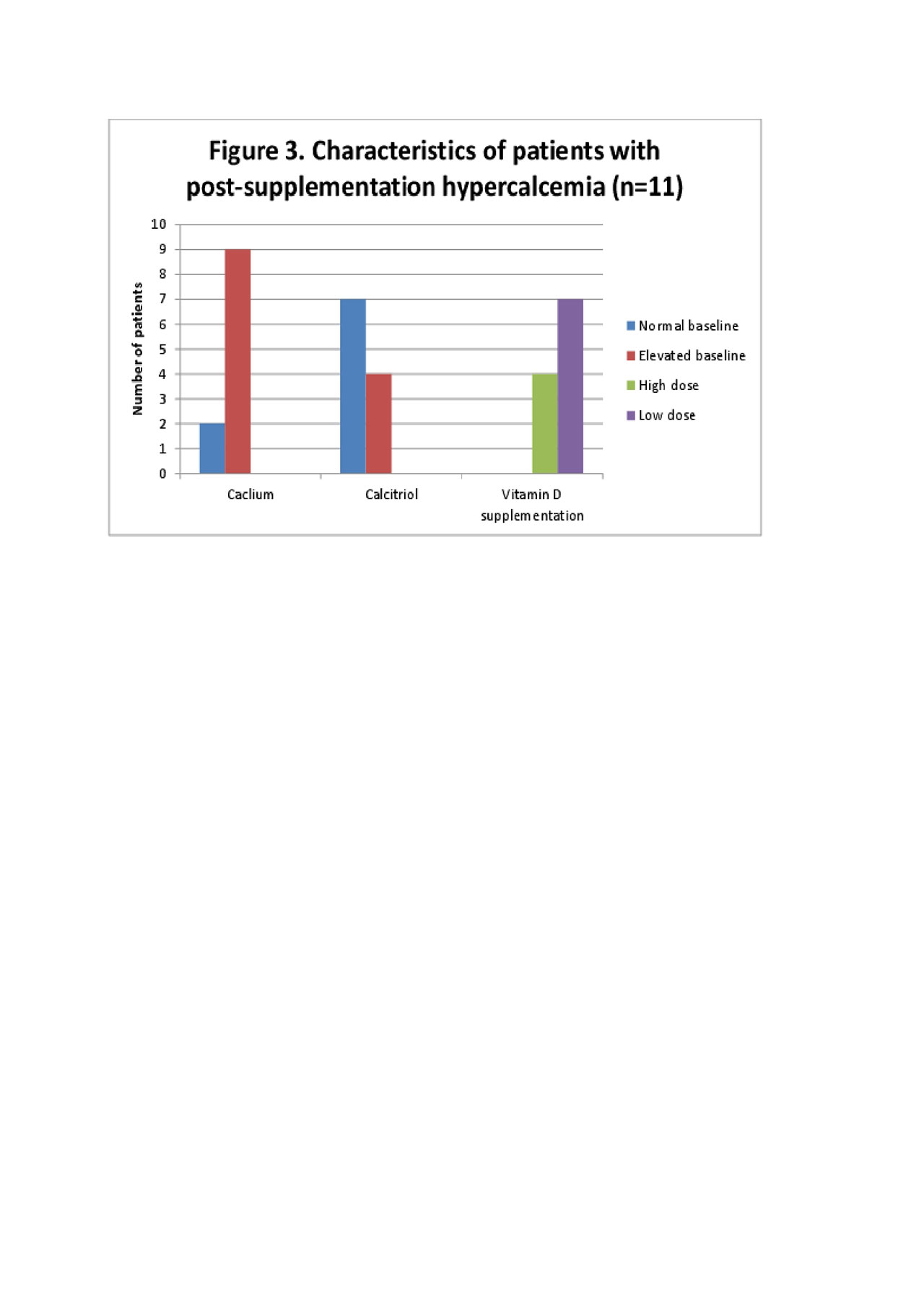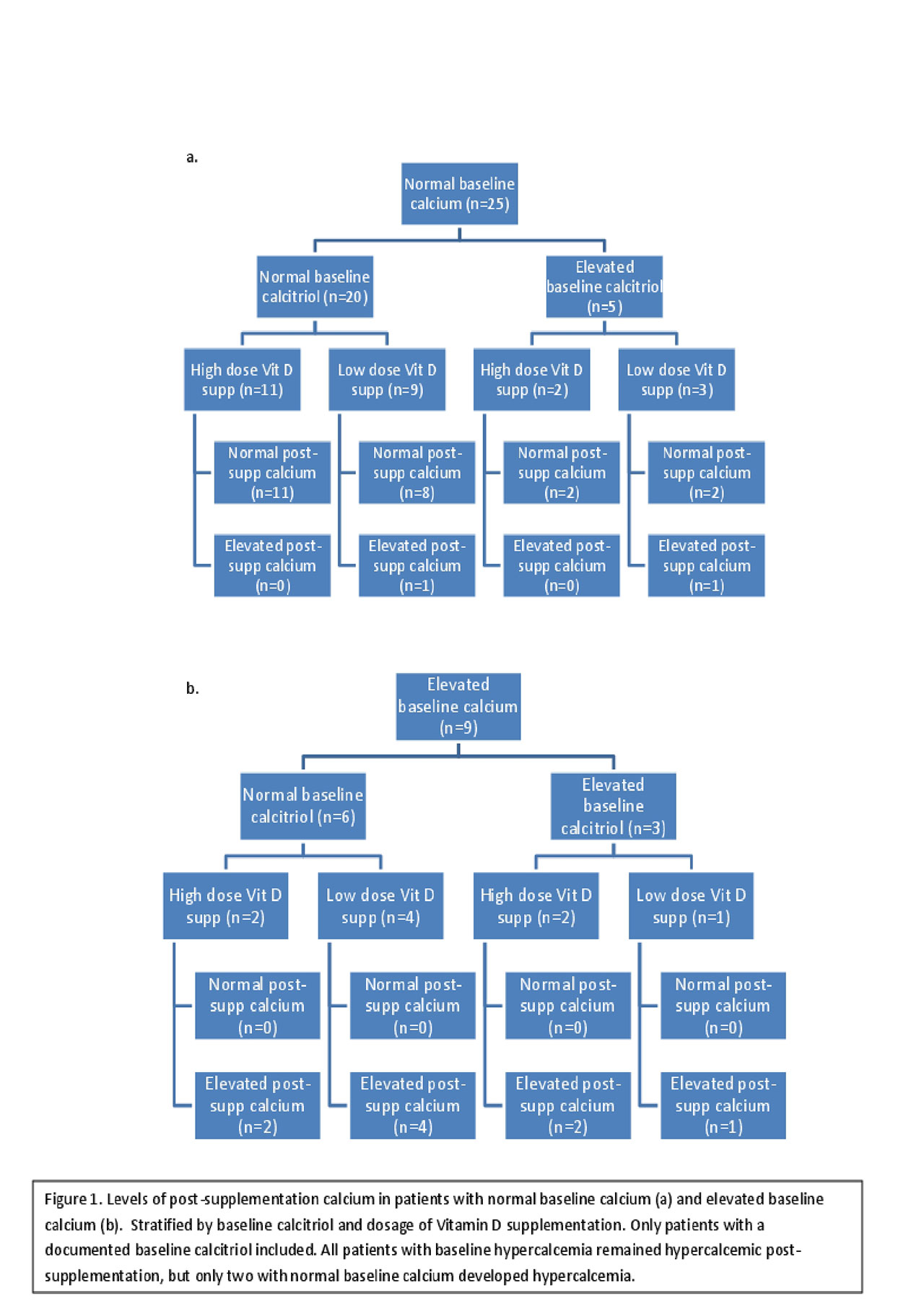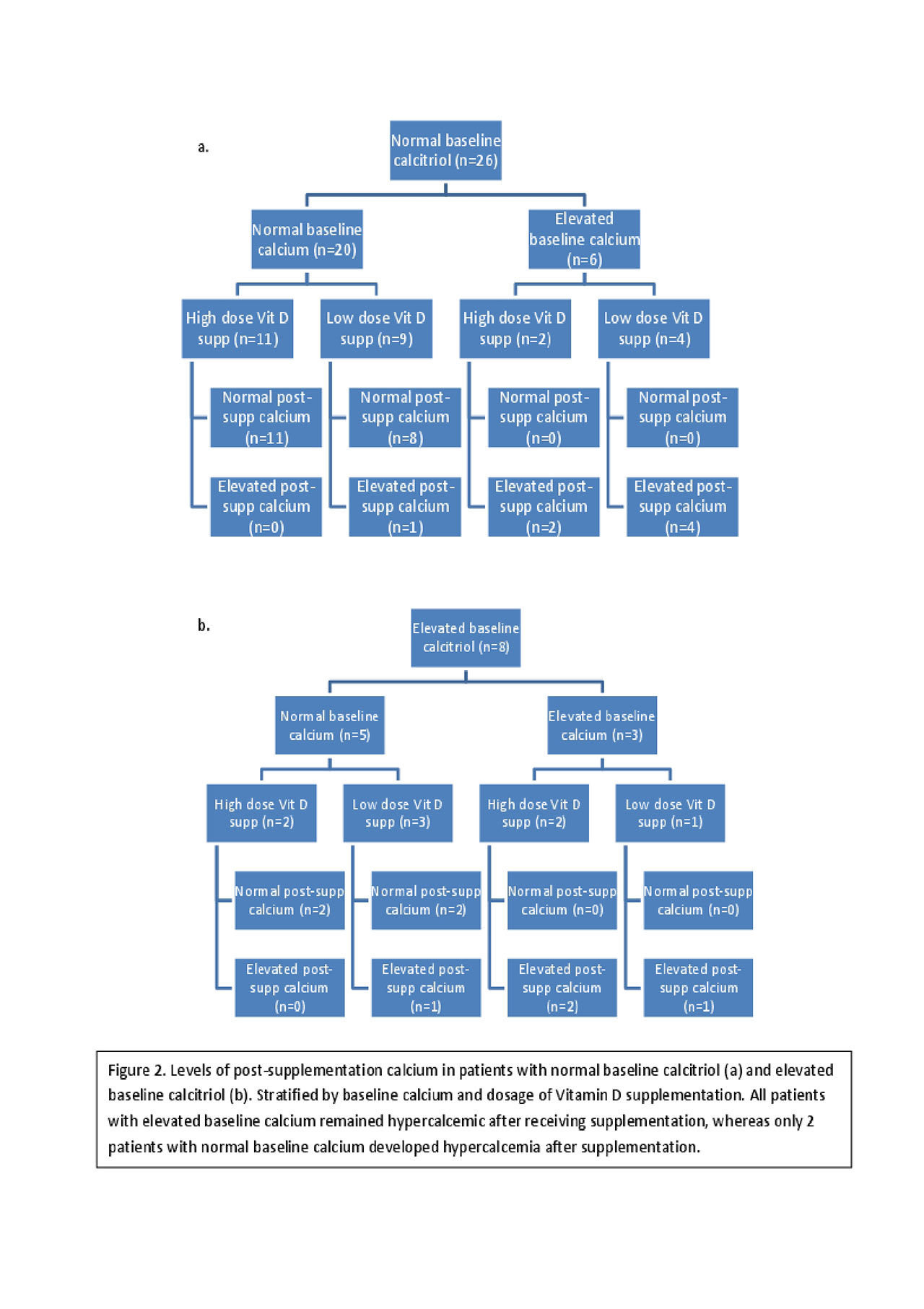Session Information
Session Type: Poster Session (Sunday)
Session Time: 9:00AM-11:00AM
Background/Purpose: Hypercalcemia is seen in 2-30% of patients with sarcoidosis and is caused by the overproduction of Vitamin D (VitD) 1,25OH (calcitriol) by macrophages within granulomas. Low VitD 25OH is also commonly seen, but VitD repletion can potentially cause hypercalcemia. There are currently limited data regarding safe VitD repletion in sarcoidosis patients. We sought to identify patients with sarcoidosis receiving VitD supplementation and determine the incidence of hypercalcemia among them.
Methods: Records of patients with at least one visit for sarcoidosis between January 2010 and December 2015, one recorded baseline calcium, and at least two recorded VitD 25OH levels were reviewed. Serum calcium, VitD 25OH, and calcitriol levels and VitD supplementation data were collected. Hypercalcemia was defined as > 10.7mg/mL. Elevated calcitriol level was defined as >79.3pg/mL. High dose VitD supplementation was defined as vitamin D2 or D3 ³50,000 units weekly, or its equivalent.
Results: One hundred twenty patients were identified (70.8% female, 84.3% African-American, median age of 50 years). Sixteen (13%) patients demonstrated baseline hypercalcemia. Of the 36 patients with available baseline calcitriol, 8 (22%) were elevated. The mean baseline VitD 25OH level was 15.64ng/mL (SD 6.88). For patients in whom repletion duration was available (n=71), median duration for repletion was 12 weeks. Two of the 25 (8%) patients with normal baseline calcium developed post-supplementation hypercalcemia, whereas 9 of the 9 (100%) patients with elevated baseline hypercalcemia had hypercalcemia after supplementation. Seven of the 26 (26.9%) patients with normal baseline calcitriol were hypercalcemic post-supplementation, whereas 4 of the 8 (50%) patients with elevated baseline calcitriol were hypercalcemic after supplementation. Of the total cohort, 11 (9.2%) patients were noted to be hypercalcemic after supplementation. Of these, 9 (81.8%) had baseline hypercalcemia, 4 (36.4%) had elevated baseline calcitriol, and 4 (36.4%) received high dose supplementation. Only one patient who received VitD supplementation developed VitD levels above the normal limit, but did not develop hypercalcemia.
Conclusion: Our data suggests that VitD supplementation can be considered in those with normal baseline calcium, but should be given with caution in those with elevated baseline calcium. Baseline calcitriol did not appear to be a risk factor for hypercalcemia induced by VitD supplementation, but additional data are needed to inform more standardized supplementation algorithms.

Figure 3. Characteristics of patients with post-supp hypercalcemia
To cite this abstract in AMA style:
Overton C, Le T, Iden T, Syed A, Kashiouris M, Syed H. Effect of Vitamin D Supplementation on Calcium Levels in Patients with Sarcoidosis: A Retrospective Analysis [abstract]. Arthritis Rheumatol. 2019; 71 (suppl 10). https://acrabstracts.org/abstract/effect-of-vitamin-d-supplementation-on-calcium-levels-in-patients-with-sarcoidosis-a-retrospective-analysis/. Accessed .« Back to 2019 ACR/ARP Annual Meeting
ACR Meeting Abstracts - https://acrabstracts.org/abstract/effect-of-vitamin-d-supplementation-on-calcium-levels-in-patients-with-sarcoidosis-a-retrospective-analysis/


